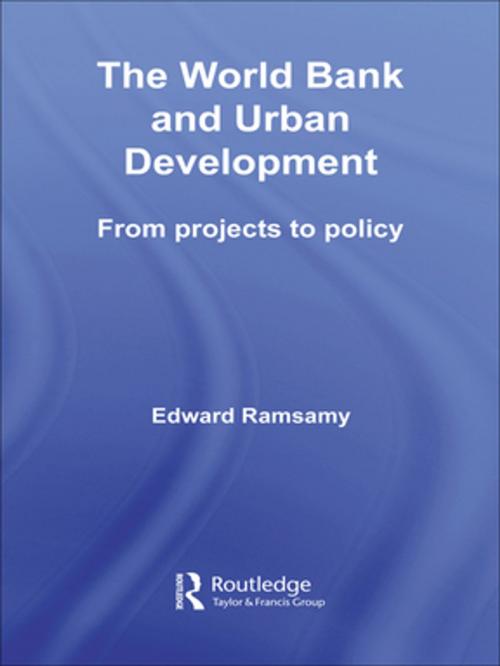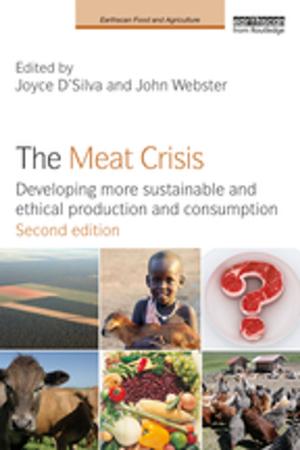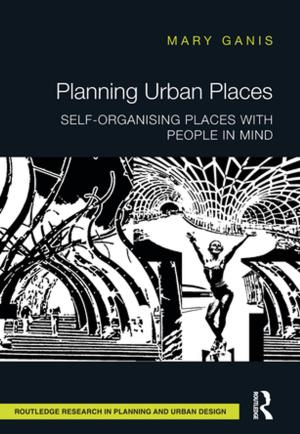World Bank and Urban Development
From Projects to Policy
Nonfiction, Science & Nature, Science, Earth Sciences, Geography, Social & Cultural Studies, Social Science, Human Geography| Author: | Edward Ramsamy | ISBN: | 9781134286966 |
| Publisher: | Taylor and Francis | Publication: | September 27, 2006 |
| Imprint: | Routledge | Language: | English |
| Author: | Edward Ramsamy |
| ISBN: | 9781134286966 |
| Publisher: | Taylor and Francis |
| Publication: | September 27, 2006 |
| Imprint: | Routledge |
| Language: | English |
As one of the world’s most powerful supranational institutions, the World Bank has played an important role in international development discourse and practice since 1946. This is the first book-length history and analysis of the Bank’s urban programs and their complex relationship to urban policy formulation in the developing world. Through extensive primary research, the book examines four major themes:
- the political and economic forces that propelled the reluctant World Bank to finally embrace urban programs in the 1970s
- how the Bank fashioned its general ideology of development into specific urban projects
- trends and transitions within the Bank’s urban agenda from its inception to the present
- the World Bank’s historic and contemporary role in the complex interaction between global, national, and local forces that shape the urban agendas of developing countries.
The book also examines how protests from NGOs and civic movements, in the context of globalization and neo-liberalism, have influenced the World Bank policies from the 1990s to the present. The institution’s attempts to restructure and legitimate itself, in light of shifting geo-political and intellectual contexts, are considered throughout.
As one of the world’s most powerful supranational institutions, the World Bank has played an important role in international development discourse and practice since 1946. This is the first book-length history and analysis of the Bank’s urban programs and their complex relationship to urban policy formulation in the developing world. Through extensive primary research, the book examines four major themes:
- the political and economic forces that propelled the reluctant World Bank to finally embrace urban programs in the 1970s
- how the Bank fashioned its general ideology of development into specific urban projects
- trends and transitions within the Bank’s urban agenda from its inception to the present
- the World Bank’s historic and contemporary role in the complex interaction between global, national, and local forces that shape the urban agendas of developing countries.
The book also examines how protests from NGOs and civic movements, in the context of globalization and neo-liberalism, have influenced the World Bank policies from the 1990s to the present. The institution’s attempts to restructure and legitimate itself, in light of shifting geo-political and intellectual contexts, are considered throughout.















